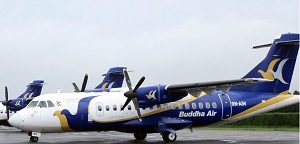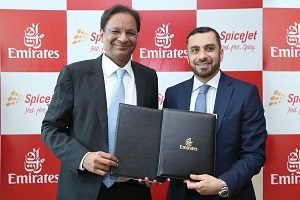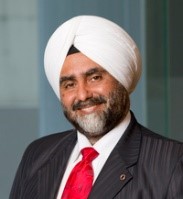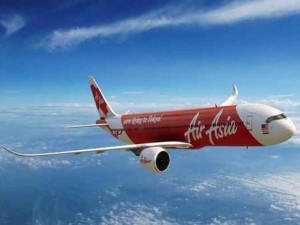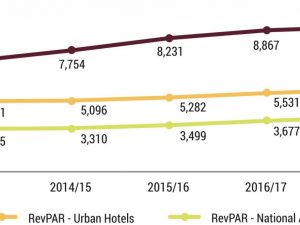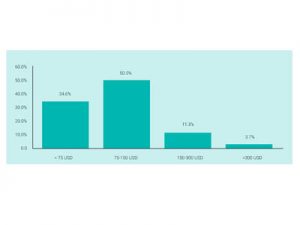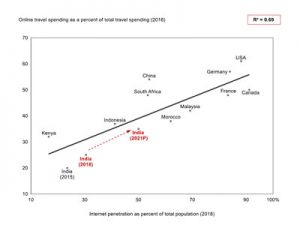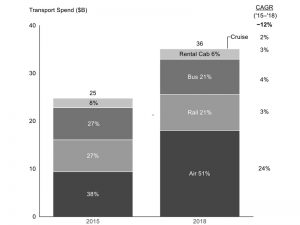Nepal based, Buddha Air, has delayed the launch of Kolkata-Kathmandu operations by over a month because of the ongoing Lok Sabha elections. Rupesh Joshi, Marketing Director, Buddha Air says, “Both the India government and all agencies involved with aviation business suggested to begin the service post election. So we decided to defer it.” Buddha Air will operate thrice a week- Monday, Wednesday and Friday from May 27 2019. The airline would be the second Nepali air carrier to connect Kolkata with Kathmandu after the Royal Nepal Airlines’ withdrawal from Kolkata two decades back. (Source: PTI)
Read More »Emirates & SpiceJet enter codeshare agreement, six Indian cities to join Emirates network
Emirates and SpiceJet have signed a Memorandum of Understanding (MoU) to enter into a reciprocal codeshare agreement, which is set to open new routes and destinations for passengers travelling between India and popular destinations across Africa, America, Europe and the Middle East. Subject to necessary government approvals, the partnership will enable Emirates’ passengers to enjoy seamless connectivity on flights to India, leveraging SpiceJet’s strong domestic presence and adding six new destinations: Amritsar, Jaipur, Pune, Mangalore, Madurai and Calicut – to the nine existing cities in India served by Emirates. This will bolster Emirates’ already-extensive network adding a total of 67 weekly connections between Emirates’ hub in Dubai to these six fast growing destinations in India. This includes increased domestic connectivity from Emirates’ nine Indian gateways to points such as Goa, Hubli, Guwahati, Vishakhapatnam and Tuticorin which would allow for a greater variety of travel options between both Emirates and SpiceJet flights. “Our journey in India has been defined by progressive investment, partnership and growth. We constantly try to improve and provide our customers with greater flexibility and travel choices. This partnership with SpiceJet and the mutual expansion of our network will go a long way in further enhancing the travel experience of our customers in India as well as those heading into India, benefiting travellers and businesses alike,” said Adnan Kazim, Emirates’ Divisional Senior Vice President, Strategic Planning, Revenue Optimization and Aeropolitical affairs. Passengers travelling from India will have more choice to travel seamlessly with minimum connection times, when flying to destinations in Emirates’ Europe network such as London, Paris, Frankfurt, Manchester and Amsterdam. The codeshare agreement will also open up flights for Indian travellers to North and South American destinations …
Read More »GVK inks pact with NIIF and Abu Dhabi’s ADIA; to offer 49% stake in airport
GVK Power & Infrastructure has announced that its subsidiaries, GVK Airport Developers and GVK Airport Holdings, have signed a term sheet and exclusivity agreement with the Abu Dhabi Investment Authority and the National Investment & Infrastructure Fund for an investment in new shares in GVKAHL equating to a 49% stake. GVK had initiated a process to identify and select preferred investors to raise capital to reduce or refinance debt obligations of up to INR 5,750 crore. The transaction is subject to conclusion of confirmatory due diligence by ADIA and NIIF, agreement on definitive documents and satisfaction of customary closing conditions including regulatory/third party approvals and lender consents. Citigroup Global Markets India is acting as the exclusive financial advisor to GVK for the transaction. ADIA and NIIF were selected as the preferred partners by GVK following this process. All proceeds from the proposed transaction will be used by GVK towards retiring debt obligations. Dr. GVK Reddy, Founder and Chairman, GVK, commenting on this development said, “We are delighted to sign these agreements with ADIA and NIIF. The funds brought in through this proposed transaction will help us deleverage as we continue with our endeavours to create the infrastructure for a strong aviation hub in India that will provide the impetus for growth and development for the entire country. Our future focus will be on delivering Navi Mumbai International Airport, successfully monetising Mumbai airport’s real estate and building a strong airports business at GVK.”
Read More »Best Western opens its first SureStay Plus hotel brand in Indore
Best Western Hotels & Resorts has launched its new SureStay Plus Hotel Brand in India with the opening of a first SureStay Plus hotel in Indore, Madhya Pradesh. The hotel offers 57 rooms across three categories and eight suites. “We are delighted to unveil SureStay Plus Hotel by Best Western Indore, an exciting midscale brand that will redefine the hotel landscape in Indore.,” said Atul Jain, Best Western’s Chief Operating Officer for India, Bangladesh and Sri Lanka. “By combining the ease and affordability of midscale hotels with the international standards of a global chain, SureStay Hotel Group is sure to appeal to business and leisure travellers alike”.
Read More »2020 likely to witness highest occupancy in Indian hospitality industry: Mandeep Lamba
Mandeep Lamba, President, HVS ANAROCK-South Asia, in an exclusive interview with Tourism Breaking News, said, “Going forward we are headed towards interesting times in the hospitality space. In fact, our recent study shows, 2020 could be the year of the highest occupancy ever witnessed in the Indian hospitality industry. The industry is finally accepting the fact that we are on a start of the upside. We are observing a trend we were long waiting for. We have seen industry go through troubled seven years on a downturn. Finally, everyone is relieved that we are finally going to see an upturn.
Read More »Tatas raise stake in AirAsia India to 51%
Tata group has increased its stake in AirAsia India to about 51%. This has been done in order to consolidate airline’s positioning in the aviation sector. Now, Tatas hold controlling stake in two airlines — the second being Vistara that is 49% owned by Singapore International Airlines. Earlier, both Tata group and AirAsia had 49% stake each with Tata Trusts managing partner R Venkataramanan and group executive S Ramadorai holding the rest. (Source: ET)
Read More »RevPAR of leisure properties in India outpaces that of urban hotels
In the hotel industry, leisure properties in India continued to outperform their urban counterparts largely as a result of steady demand and higher average rates, as per a latest research by Hotelivate. The RevPAR of Rs 9,235 clocked in 2017-18 by the leisure sub-set was 1.6 times that of the urban sample and 2.4 times the national average. The strong year-on-year performance of the former clearly points towards a healthy demand for such hotels in the country, making investment in leisure properties perceivably more viable than previously thought. The peaks and troughs in demand in leisure locations is smoothening with creative promotions, social events, corporate off-sites, MiCE and group travel serving as fillers. Moreover, the low reliance of leisure hotels on RFPs from corporates that are relatively more sensitive to economic and trade conditions, make them less vulnerable to price wars.
Read More »Indians mostly spend USD75-150 per day per room on overseas holidays
More than 50 per cent of Indian travellers budgeted USD75-150 per room per night for leisure travel, reports a study by CAPA India and Expedia titled ‘The Inflection Point for Indian Outbound Travel’. Hotels have been the standard option for the Indian traveller in the past, however, travellers are now exploring other accommodation options, with 38% of survey respondents having rented a villa or apartment while travelling overseas. This has been made more accessible by online platforms such as Airbnb and others, which offer homestays. Traditionally at short-haul destinations, Indian travellers spend one-third of their holiday budget on accommodation. Indians visiting Singapore spent around 35% of their trip cost on accommodation, compared to Chinese and Indonesians who spent only about 18% in 2015. For medium to long-haul destinations, the spend on accommodation can increase to up to half of the total trip budget. Indians visiting Mauritius in 2016, spent around 56% of expenses on accommodation while those visiting Switzerland spent around 48% of their budget on accommodation. International leisure travellers from India are drawn mostly from high and upper-middle income economic segments. They are used to a certain standard of living and expect similar conditions and conveniences when travelling. Given the high quality of hotels in India, there is an assumption that equivalent levels of luxury and service will be available overseas, which is not always the case. Leading hotel chains have shared that they find it difficult to replicate their customer proposition at overseas destinations because of the much higher cost of labour and different service cultures. This can result in expectations being disappointed.
Read More »Indians to spend an additional $24 billion on online travel bookings by 2021
Online bookings in India are projected to rise from 25 per cent to 35 per cent as internet penetration increases from 33 per cent to 50 per cent, according to a latest study titled ‘How does India travel?’ by Bain & Company and Google. As India’s travel spending is set to grow from $94 billion in travel spending to $136 billion by 2021, around $24 billion (or 57 per cent) of the incremental bookings will be online. The report states that frequent flyers research online and make decisions on the basis of business needs and availability of flights and hotels. They rely heavily on travel provider websites online (59 per cent) and price comparison websites (51 per cent) for airline and hotel reviews and availability with a tendency to search first by mobile device (61 per cent) and then by laptop (26 per cent).
Read More »Airlines dominated Indians’ transport spending with 51%
Indian travellers spend 51 per cent of their transport expense on airlines, as per a latest study titled ‘How does India travel?’ by Bain & Company and Google. The Indian airline industry is one of the fastest-growing in the world. With 10 new airports in the last four years and the decrease of nominal prices by 18 per cent in 2017–18), airlines dominated the transport spending despite operational pressures. Bus price hike due to GST, falling passenger footfalls and preference for self-drive hampered growth in bus travel. Railways’ growth remained stagnant and it lost share to airlines for long-distance travel (>500 kms) and to road for shorter distance travel.
Read More » Tourism Breaking News
Tourism Breaking News
